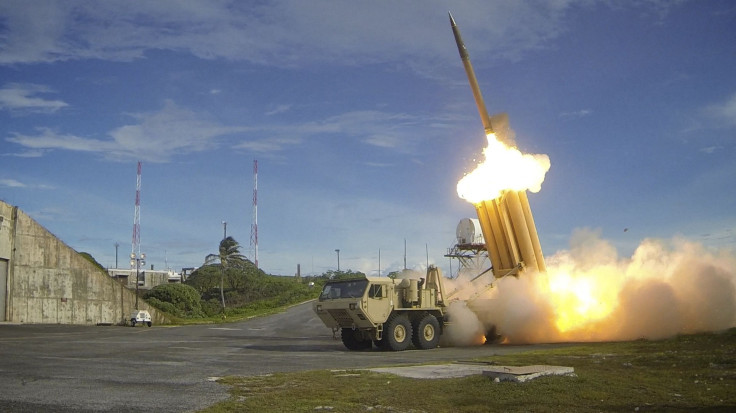THAAD In Korean Peninsula: South Korea ‘Undoubtedly Has Intention’ To Install US Missile System

South Korea is willing to deploy Terminal High Altitude Area Defense (THAAD), an advanced U.S. missile system, amid growing nuclear ambitions of its neighbor North Korea. Han Min-koo, the South Korea defense minister, made the comments during a security summit held in Singapore on Saturday.
“[South Korea] undoubtedly has the intention to deploy the Terminal High Altitude Area Defense,” Han said, according to Yonhap News Agency. “The missile interception capability that the South Korean military and the United States Forces Korea currently have is for low-altitude defense in the terminal stage (of an incoming missile), therefore the deployment of THAAD which could defend a broader region, is more valuable militarily … South Korea thoroughly considers it a matter of national security and interests,” Han added.
Washington and Seoul are in talks to install THAAD system in the Korean Peninsula to counter threats from North Korea that has carried nuclear and missile tests since the beginning of this year. The move has been opposed by China and Russia.
Seoul, which has substantial trade ties with the world’s second-largest economy, has previously denied any formal discussion about the installation of THAAD, which can reportedly shoot down short-, medium- and immediate-range ballistic missiles. However, Pyongyang’s series of nuclear and missile tests has led South Korea to deliberate otherwise.
Beijing maintains that the THAAD missile system could be used to monitor its missile launches as far inland as Xian in the northwest. Similarly, Moscow said that the installation of the missile system will create a threat to its security.
In March, the two countries — the strongest supporters of the Kim Jong Un-led regime — urged North Korea to reopen international talks on its nuclear program and abide by a United Nations Security Council resolution that does not allow Pyongyang’s missile tests. The reclusive nation has threatened to carry out more nuclear tests.
© Copyright IBTimes 2025. All rights reserved.






















